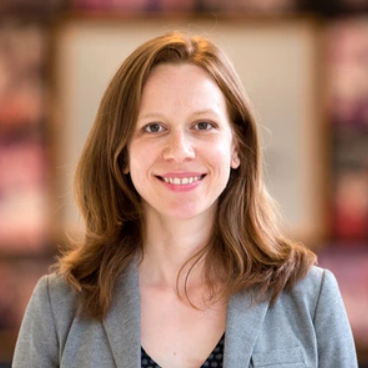Last month, the Queen's Gazette highlighted the recipients of the federal Insight and Partnership Grants, awarded through the Social Sciences and Humanities Research Council (SSHRC). These grants are part of a larger $1.3 billion federal investment in Canadian research, with over $240 million allocated to the social sciences and humanities. As reported by the Gazette, “Close to 50 researchers at Queen’s have secured $11.5 million across four SSHRC programs.”
Among these researchers are five scholars from the Faculty of Education, who have secured funding to support projects that promise to advance equity, innovation, and impact within the education sector. We spoke with each of them to learn how their projects will take shape over the coming years—and how their work is poised to influence educational research and practice at regional, national, and global levels.
The Insight Grants fund research excellence in the social sciences and humanities, enabling scholars to address complex issues about individuals and society and advance their research programs. Funding of up to $500,000 is available for up to five years.

In today’s climate crisis, it is no surprise that many educators and youth are experiencing climate cynicism—marked by feelings of dejection, hopelessness, and isolation. Climate education and activism can be emotionally demanding, and without strong support networks, it's easy to feel alone. Dr. Heather McGregor’s Insight Grant project, “Climate Justice Education in Ontario: Creating and Sustaining a Professional Learning Community,” directly responds to this need by building community-based support structures for educators committed to climate justice.
Together with co-investigators Dr. Thashika Pillay and Dr. Alice Johnston, and collaborators Dr. Sara Karn and Lindsay Borrows, Dr. McGregor is developing a local professional learning community (PLC) in Eastern Ontario. The PLC will support educators already invested in, or curious about, climate education. The regional focus allows for sustained collaboration among educators who can visit each other’s classrooms, share resources, and co-develop place-based curricula rooted in local environmental contexts like the Cataraqui and St. Lawrence watersheds. Crucially, the project integrates Anishinaabe and Haudenosaunee knowledges in a way that avoids pan-Indigenous generalizations. The formation of the community, and the research methodologies used to document it, emphasize relationality, reciprocity, and long-term relationship building.
Structured over five years, the project begins with recruitment, followed by three years of collaborative learning and a final year dedicated to knowledge mobilization. A centerpiece of the initiative is an annual land-based retreat at a children’s camp venue, where educators gather to build community, co-create climate education materials, and deepen their relationships with the land and each other. These multi-day camps are complemented by land-based workshops and professional learning activities that focus on understanding local climate contexts, ecological needs, and relationships that extend beyond the human world. This setting allows the learning to be rooted in place—growing more meaningful and connected over time as participants return to the same land year after year. The community aspect of these camps is intentionally organic, fostering collaboration and reflection in a holistic environment that deepens both ecological understanding and professional relationships.
Dr. McGregor detailed the emotional dimension of this work: to guide students through climate issues, teachers must first explore their own emotional landscapes in relation to social and environmental justice. Recognizing emotional triggers and personal barriers is essential to modeling healthy climate engagement for youth. Preparing pre-service educators for this kind of self-reflection has been a focus of her teaching at Queen’s and will inform this new work with in-service educators.
The Insight Grant will fund graduate student researchers, educator release time, the annual camps, and smaller retreats for the facilitation and research teams—what McGregor affectionately refers to as "a community within a community."
A key aim of this project is to better understand which local communities are most impacted by environmental injustice—particularly Indigenous, racialized, and low-income populations. Rather than making assumptions, Dr. McGregor emphasizes the importance of having these conversations with participants to identify who is most affected and how to respond responsibly. While there are many excellent books, youth narratives, and digital resources from around the world that inspire climate action, she foregrounds the need for locally grounded materials. Addressing relationality means engaging directly with the places, ecosystems, and people we’re accountable to.
During and after the Insight Grant period, the research team plans to make materials developed through the PLC—such as unit plans, handbooks, and multimedia resources—freely available, as with other research and teaching projects. Their hope is that educators will carry this community-based learning back into their classrooms, extending its impact beyond the initial participants. They are also exploring how this model could serve other audiences by creating more professional learning communities in partnership with other local organizations or regional partners interested in sustained, climate-justice-focused professional learning.
When asked what advice she would offer researchers applying for Insight Grants, Dr. McGregor was clear: collaboration must start early. “Bring your whole investigator and collaborator team into the design process from the beginning,” she said. “Every voice matters.” She also offered a personal reflection: “Design research that will feed your soul.” The most compelling projects, she notes, come from a place of genuine passion. When researchers feel deeply invested in their work—excited to wake up and pursue it—the grant-writing and research process becomes far more meaningful and effective.
Read about the other major SSHRC-funded projects at the Faculty of Education